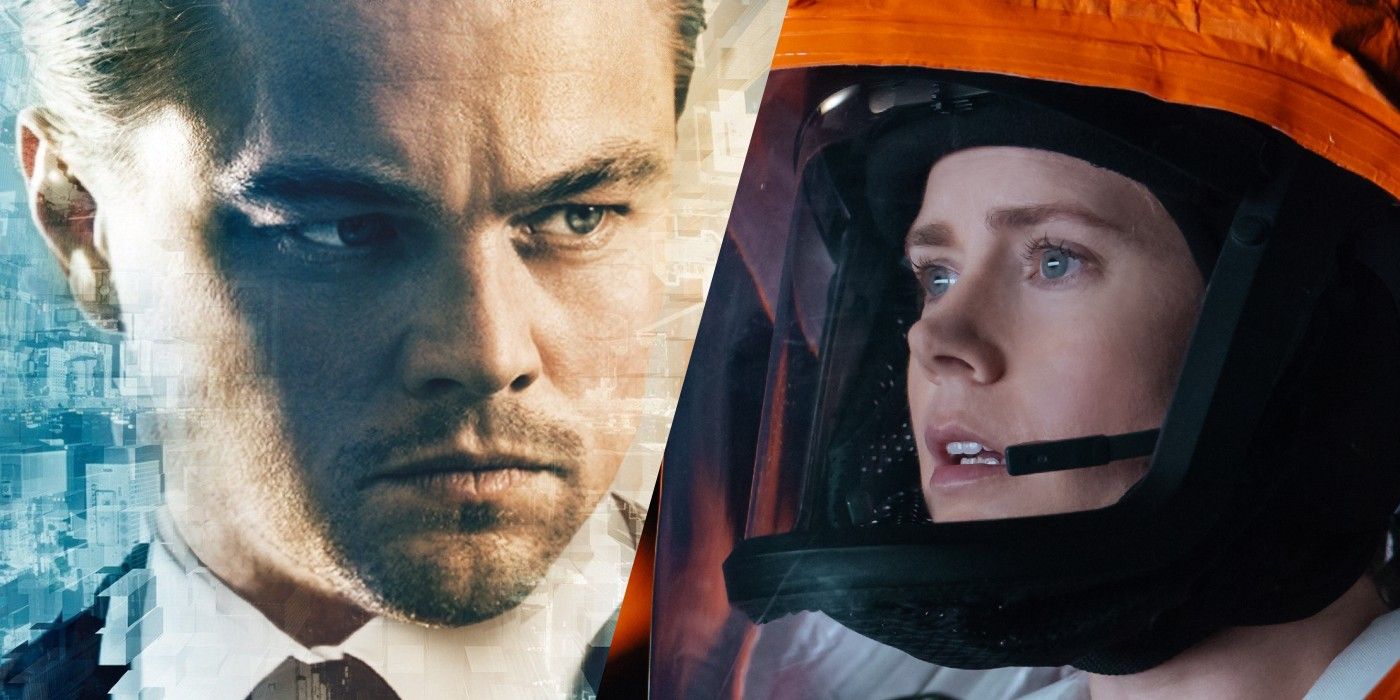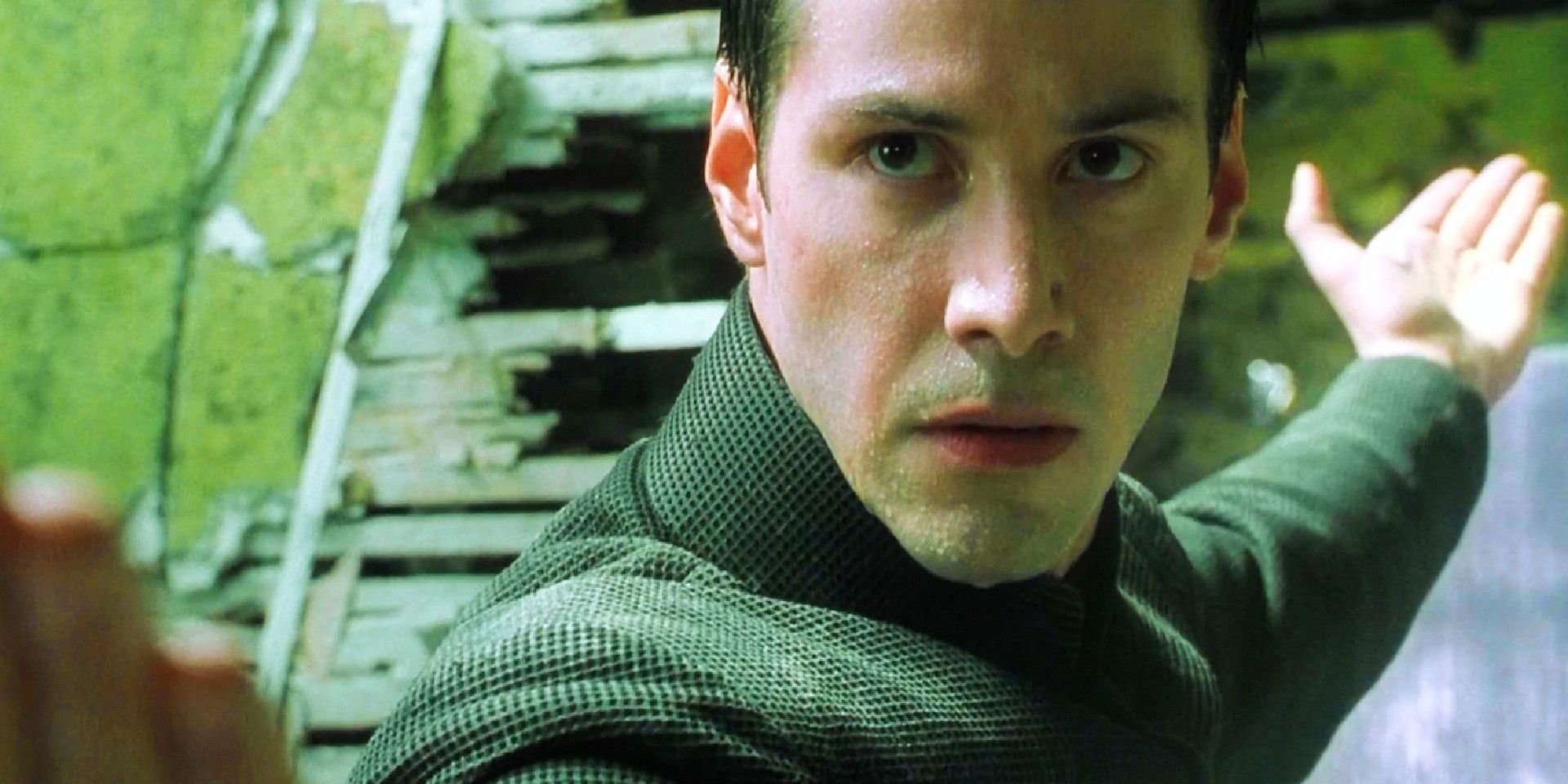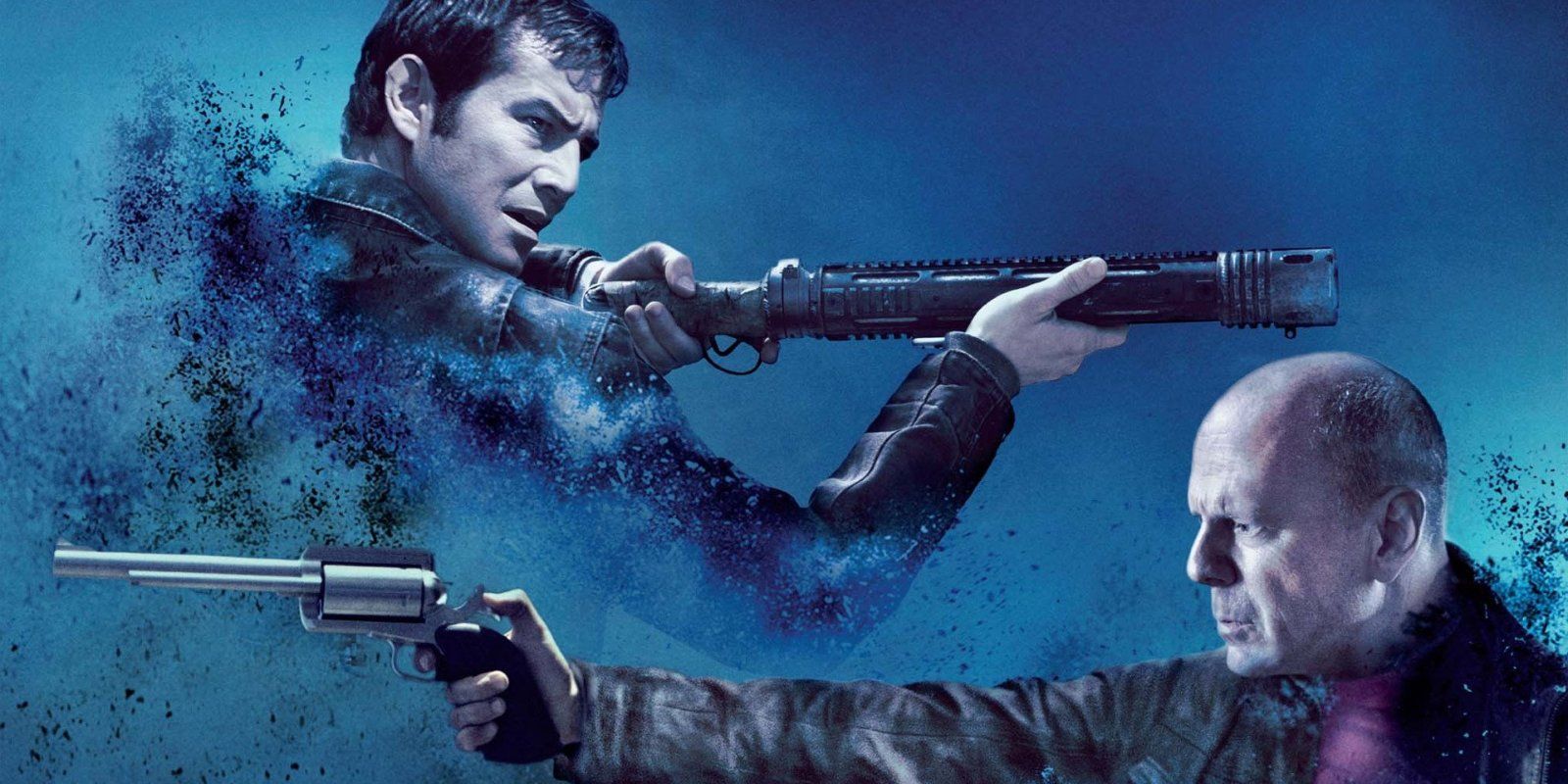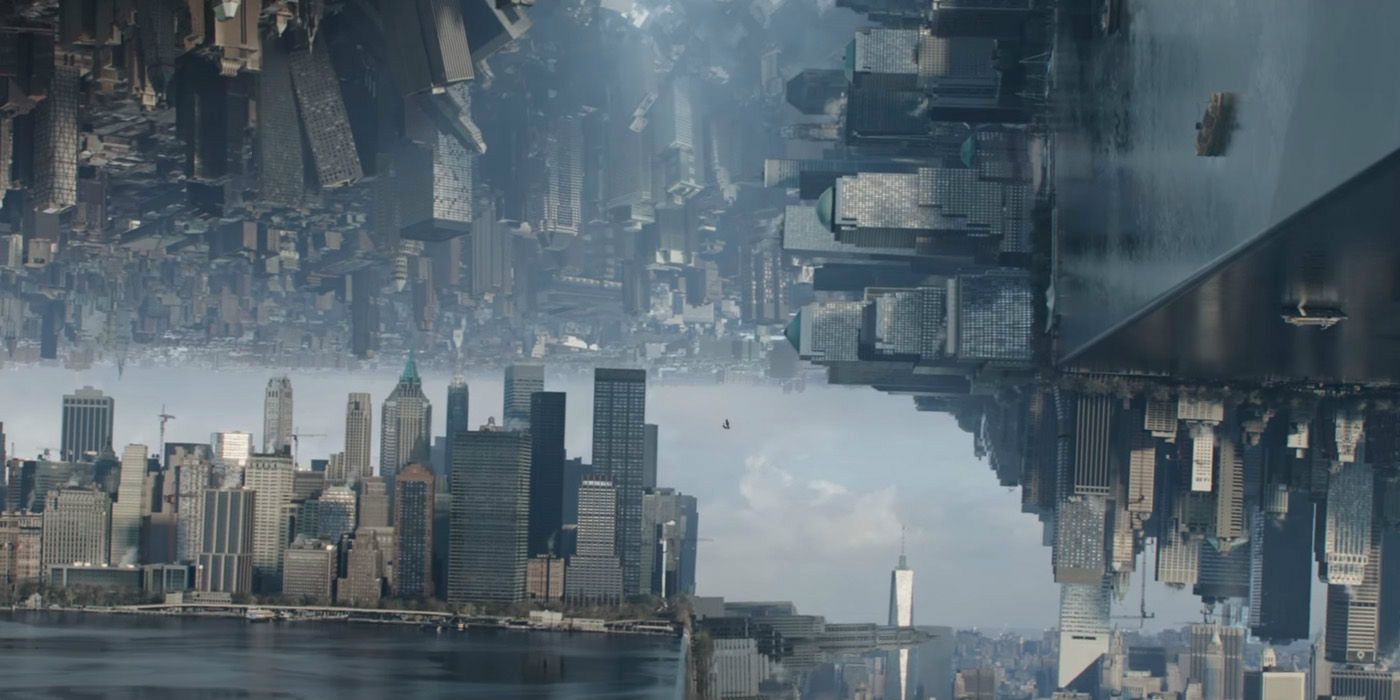Ten years out from Inception hitting theaters in July 2010 and the impact of Christopher Nolan's sci-fi movie continues to make itself felt in the current blockbuster landscape. Nolan is an exception among modern directors: not only is he one of the few (only?) filmmakers able to get original big-budget movies green-lit in a time when franchises and IP reign supreme, he's also retained his auteur touch and continues to explore the same ideas (like how time, space, and memory affect our perception of the world) that've fascinated him since the release of his indie breakout hit Memento in 2000.
After Nolan's The Dark Knight set a new opening weekend record and joined the (then, much more exclusive) billion-dollar club in 2008, the director had carte blanche to make just about anything he wanted. He thusly decided to move forward with Inception, an original sci-fi film he'd pitched all the way back in 2001, but felt he needed additional experience directing big movies before tackling. Thanks to his success with the Batman movies, Nolan was able to lock down a budget of $160 million to realize his vision, which was almost certainly more than he would've received to make the film, had he attempted to get it off the ground prior to directing Batman Begins in the mid-'00s.
Led by a cast that included Leonardo DiCpario, Marion Cotillard, Joseph Gordon-Levitt, Ellen Page, Ken Watanabe, and (at the time of its release, a lesser-known) Tom Hardy, Inception dazzled critics and audiences with its twisty story of professional thieves who infiltrate their targets' subconscious through dream sharing. The film has prompted all manner of analysis and think-pieces since then, from discussions about the ways Nolan shot Gordon-Levitt's now-iconic gravity-defying hallway fight to debates about its ambiguous ending and whether Dom (DiCaprio) really was in a dream the whole time (and, more importantly, if it even matters). You'd be hard-pressed to find a more influential mainstream sci-fi movie since the release of the Wachowskis' own mind-bending take on the genre eleven years earlier.
Inception Was The Most Groundbreaking Sci-Fi Movie Since The Matrix
It's no secret the Wachowskis' original Matrix came to define the next decade of not only sci-fi movies but sci-fi action movies specifically, following its theatrical run in 1999. In addition to the endless parodies of its bullet-times sequences (with Fiona's fight scene in Shrek being one of the more famous examples), The Matrix gave rise to a string of films inspired by its then-unique blend of stylized martial arts brawls/shoot-outs and characters all decked out in black and waxing philosophical about things like fate, free will, and the nature of reality. Some of its imitators were pretty unsubtle in the ways they copied the Wachowskis' homework (see also: 2002's Equilibrium), yet the rage-born anti-capitalism allegory's tone and style naturally lent themselves to the wave of bleaker post-9/11 sci-fi offerings that flooded the market during the '00s (a la Minority Report, Pitch Black). Of course, by the time the decade drew to a close, The Matrix had been copied so much its once ground-breaking approach had been worn out, and even the Wachowskis failed to achieve the same heights with their first two Matrix sequels in 2003.
Like The Matrix, Inception evolved out of a sci-fi tradition that goes back to films like Blade Runner and 2001: A Space Odyssey (and the much older classics, like Fritz Lang's Metropolis, that inspired them), yet the former's influence on Nolan's movie is undeniable. But where so many sci-fi action movies in the '00s were content to rip-off The Matrix in a superficial sense, Inception went deeper and tried to emulate - rather that imitate - what the Wachowskis had accomplished by finding its own innovative ways of staging action sequences and using its set pieces to illustrate (rather than overshadow) the intriguing concepts at the core of its story, all with the same personal touch Nolan had brought to his previous tentpoles. The result was a movie that broke ground in many of the same ways the first Matrix had, with Inception taking home nearly $830 million at the box office and multiple Oscar wins (along with a nomination for Best Picture) for its efforts.
Inception Setup A Decade of Smart Sci-Fi Movies
Thanks to Inception, cerebral mainstream sci-fi movies were not only back in fashion, they started coming out on a nearly-yearly basis during the '10s. Gordon-Levitt even helped lead the way when he reunited with his Brick director Rian Johnson two years after Nolan's film for Looper, an original project that similarly combines a sci-fi sub-genre (the time-travel movie) with action and electrifying visuals (see: an angry child wielding terrifying telekinetic powers out of something like Akira), all to tell a character-driven story in the end. It wasn't anywhere near as costly to make as Inception, yet Looper's critical and commercial success once again proved there was a market for director-driven sci-fi movies in a time where most of Hollywood was caught up in the shared universe craze of the period.
The trend only gained momentum from there, with 2013's Gravity delivering some of the most impressive 3D filmmaking since Avatar in service of a deeply layered and emotional tale of astronauts being stranded in space. The film would go on to become a massive commercial success and a legitimate contender for Best Picture (even winning a Best Director trophy for Alfonso Cuarón). History nearly repeated itself two years later with The Martian, then haled as a return to form for Alien and Blade Runner director Ridley Scott and a box office hit that embodied a sense of scientific optimism and cooperation at a time when both qualities were already in dwindling supply. Those values were equally celebrated by 2016's Arrival, another densely-plotted sci-fi movie that (like Inception) used the magic of editing to not only explore big ideas (namely, how our modes of communication shape the way we perceive time and the universe), but also tell a more intimate story of love and loss.
Nolan actually did his own part to keep the trend going with 2014's Interstellar, a future-set adventure that follows a team of astronauts as they travel through a wormhole in search of a new planet for humans to call home (what with earth's environment having been devastated). It didn't have anywhere near the pop cultural impact of Inception (nor were its reviews or box office performance as strong), but it did well all the same and carried over Nolan's practice of using big-budget spectacle and high-concept sci-fi to once again tell a touching story about a man who simply wants to be reunited with his children. The smart sci-fi movie craze suffered an unfortunate blow in 2017 when Blade Runner 2049 bombed at the box office, but even now Nolan is working to bring it back again with his upcoming original sci-fi blockbuster Tenet.
Inception's Influence Goes Beyond Sci-Fi Movies
As with The Matrix, Inception's influence has gone beyond sci-fi movies and manifested itself in ways that lend themselves to parody. Most notably, seemingly every other action movie trailer from the last decade has featured blaring horns in the vein of Hans Zimmer's score for Nolan's film. (Inception itself famously used both a regular-speed and slowed-down portion of Edith Piaf's "Non, je ne Regrette Rien" as an integral part of its music and plot.) There are also movies that've clearly drawn from Inception for inspiration in terms of their visuals, like when the sorcerers in Doctor Strange battle it out in the Mirror Dimension (a realm that appears to have been modeled after the folding dream-world cityscapes from Nolan's film as much as the original Marvel comic books).
In a broader sense, other filmmakers have tried to emulate what Nolan did with Inception over the years, but to mixed results. Sam Mendes, for example, has made it no secret he was inspired by The Dark Knight while making 2012's Skyfall, yet his second James Bond movie, 2015's Spectre, arguably has more in common with Inception when it comes to its globe-trotting narrative and reliance on massive practical effects as much as possible (including, a massive stunt explosion that set a Guinness Record). Even Michael Bay gave the world his own version of an international thriller about a group of specialists carrying out covert "jobs" with Netflix's 6 Underground, a film that mostly comes across as a bad impression of a Nolan tentpole. Still, imitation is the sincerest form of flattery and it's a testament to Inception's accomplishments that directors are still dreaming (apologies) about trying to outdo it a decade later.




